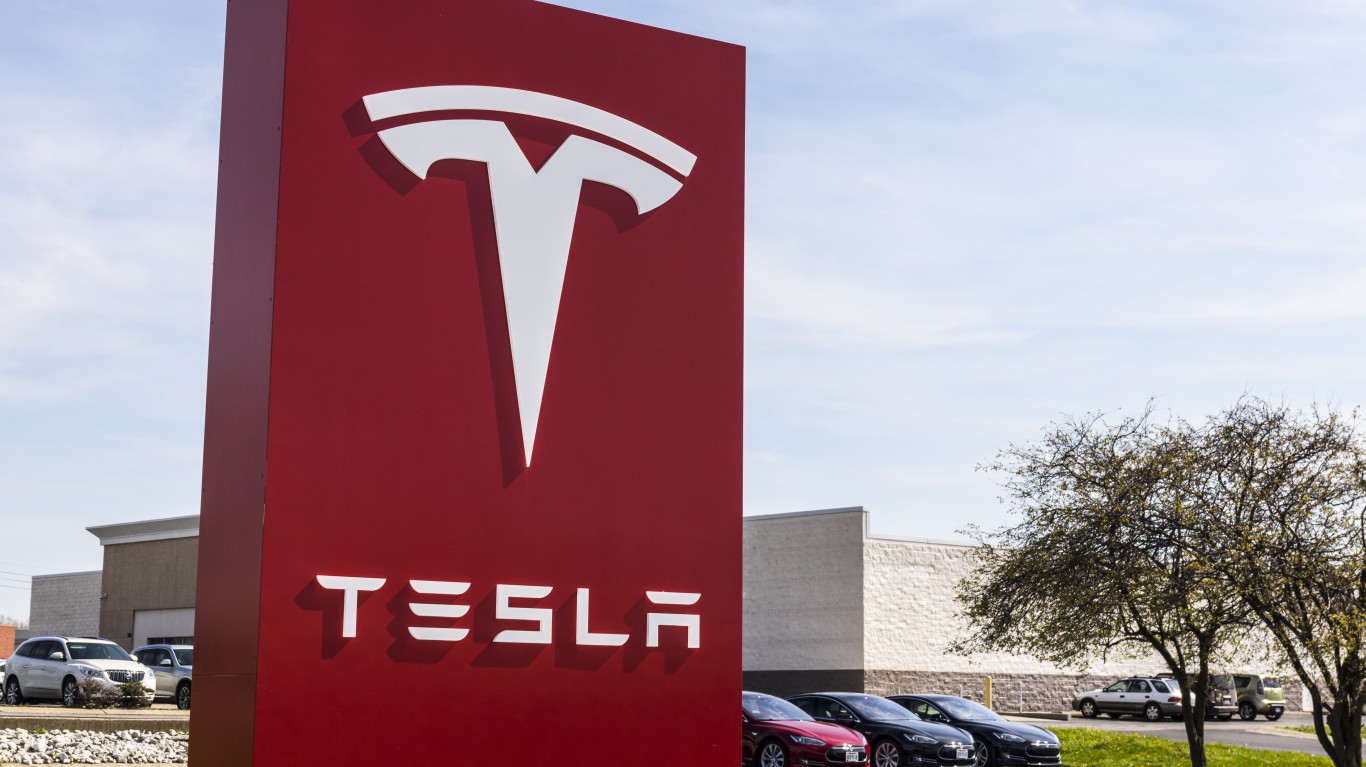
Over the past 12 months, the Nasdaq Composite index has gained about 27%. At the same time, shares of Tesla Inc. (NASDAQ: TSLA) have more than quadrupled, and the run continues Thursday following the company’s announcement of second-quarter deliveries.
Tesla delivered 90,650 vehicles in the quarter, 80,050 of the company’s Model 3 sedan and Model Y compact SUV, along with 10,600 of the Model S sedan and Model X SUV. The company produced 82,272 new vehicles last quarter, nearly 76,000 Models 3 and Y, and about 6,300 Models S and X.
The delivery total was down 5% year over year, something approaching a miracle given the shutdown of its Chinese and U.S. plants as a result of the COVID-19 pandemic. The company’s Fremont, California, plant was idled for 33 days in the second quarter compared with just eight days in the first quarter.
General Motors Co. (NYSE: GM) on Wednesday reported sales down 34% year over year for the quarter and Fiat Chrysler Automobiles N.V. (NYSE: FCAU) reported sales dropped by 39%. Ford Motor Co. (NYSE: F) reported quarterly sales down 34%.
When the company reports second-quarter results later this month, analysts are expecting a net loss per share of $1.36 on revenues of $4.83 billion. Given the solid delivery total for the quarter, the loss could be much smaller.
In the longer term, however, Tesla is creating a gap between itself and traditional automakers just ramping up their electric vehicle (EV) offerings. Even though most have committed billions of dollars to manufacturing EVs, all will have to snatch demand from Tesla, which now controls about 70% to 80% of the U.S. market for EVs.
Analyst Gene Munster at Loup Ventures expects that between 3% and 5% of new cars sold in the United States this year will be EVs. CEO Elon Musk has said he expects Tesla deliveries to increase by 40% to 50% annually through 2030. That means the current annual production of around 500,000 vehicles will grow to 15 million vehicles by 2030. That’s more than all the new vehicles expected to be sold in the United States in 2020 (admittedly a down year compared to several years of sales averaging 17 million or more).
Munster does not expect automakers like Ford, GM or Chrysler to catch up with Tesla. He believes the price-performance gap between Tesla and the traditional carmakers will widen because they won’t be producing as many EVs as they will need to in order to meet rising demand.
An EV from a traditional carmaker with equal features and range, when sold at cost, would be priced 10% to 25% more than a comparable Tesla, according to Munster. Consumers will look elsewhere, presumably to Tesla.
An alternative scenario has the traditional automaker limiting margins in order to gain share. In Munster’s view, “The more they sell, the more money they lose.” He goes on to say that 10 years from now, traditional automakers will have to restructure or go out of business.
Tesla’s market cap of around $225 billion now exceeds that of Toyota Motor Corp. (NYSE: TM), Ford and GM combined. Shares traded up more than 8% early Thursday to $1,210.27, after posting a new 52-week high of $1,228.00. The 52-week low is $211.00, and the consensus price target on the stock is $697.81.
Travel Cards Are Getting Too Good To Ignore (sponsored)
Credit card companies are pulling out all the stops, with the issuers are offering insane travel rewards and perks.
We’re talking huge sign-up bonuses, points on every purchase, and benefits like lounge access, travel credits, and free hotel nights. For travelers, these rewards can add up to thousands of dollars in flights, upgrades, and luxury experiences every year.
It’s like getting paid to travel — and it’s available to qualified borrowers who know where to look.
We’ve rounded up some of the best travel credit cards on the market. Click here to see the list. Don’t miss these offers — they won’t be this good forever.
Thank you for reading! Have some feedback for us?
Contact the 24/7 Wall St. editorial team.




